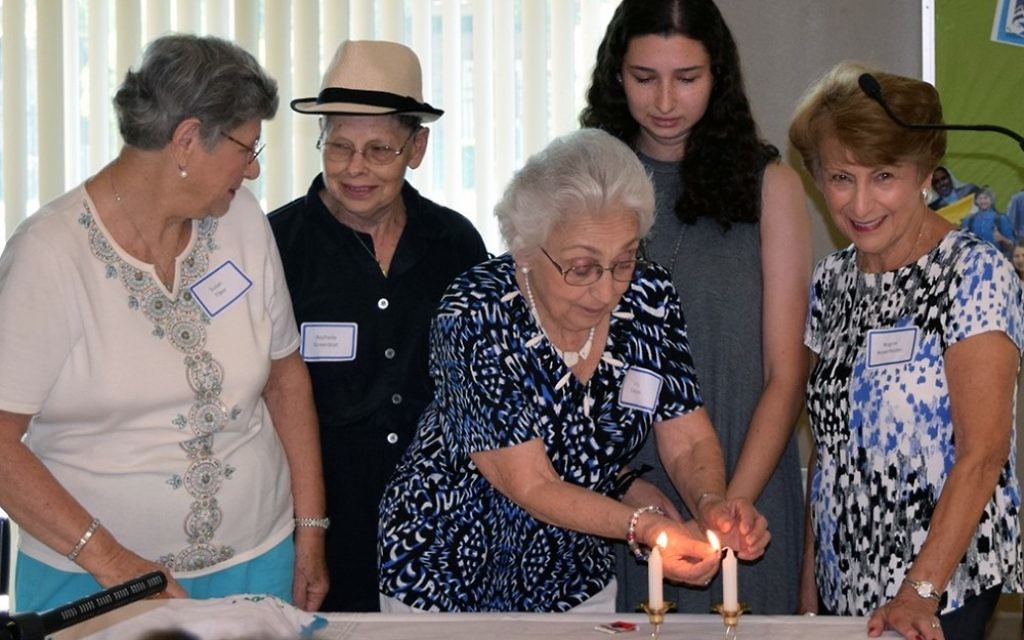What Israel Should Aim for in 2018
Approaching its 70th birthday, the Jewish state has established its genius but must not forget its kindness.

Those of us in our seventh, eighth and ninth decades are blessed to see 2018 open when many of us never expected to be here. We are the last of those who knew Eretz Yisrael before it was the state of Israel.
We have had the merit of watching Israel grow and succeed in a multitude of ways. The Jewish mind combine in Israel has made it possible for our scientists and computer experts to reach new peaks that the next generation can climb. The activation in Israel of the Jewish mind has branched out far beyond its expected potential. The discoveries are the work of individuals in their second, third, fourth, fifth and sixth decades.
So here we are entering a special year, approaching Israel’s 70th birthday. April 18 will bring a Yom HaAtzmaut with great splendor in which this country’s pioneers in spirit are honored for their determination and Israelis of today continue to thrill the world with their outstanding innovations. This is science — the thrill of discovery.
Get The AJT Newsletter by email and never miss our top stories Free Sign Up
But what about the other characteristics that we should be concerned about because they are what made us the people who we are and lifted us even higher?
In the essay “On Being a Mensch,” Rabbi Morris Adler, the only rabbi assassinated while he was on the pulpit, offers an important challenge for us. “The apologetic line ‘after all I am only human’ is a denial we should never make. Indeed, the single small word ‘only’ is a denial of our humanity. Being ‘human’ represents a goal and an achievement; being a ‘mensch’ means calling upon capacities which are sometimes permitted to lie fallow.”
Rabbi Adler writes that “man is never to be defined exclusively in terms of his present stature and attainments. There is more to him/her than what he is at any given moment. Within him are possibilities unrevealed by his current posture. If he wills,” which for the rabbi is so important, “he can move upward from level to level. He never arrives — and this applies to the greatest geniuses, the greatest leaders. The full realization of all of his powers will never occur.”
Then Rabbi Adler shares a most significant insight: “Man need not be a prisoner of his physical nature nor the victim of external pressures and circumstances. In all of us there is a dimension of ‘menschlichkeit’ which is not encompassed by a physiological and sociological study of the individual. What we should do with our greatest possession called life is to make our goal and adventure and its fulfillment an accomplishment which fashions us into a ‘mensch.’”
Striving to climb to this level of humanity is something we must never forget.
In Am Yisrael we see instances of this when people take on the protection of battered wives and sexually harassed women, work to establish special schooling of people who are not on the same plane as all their contemporaries, provide food for those who have none, assist Holocaust survivors who are practically starving and confined to tiny dwellings, work to find housing for those who are disabled and homeless, offer aid to people of all faiths and color, and travel to help refugees who are just blowing in the wind.
What we want to see happen in 2018 is for each of us to continue to learn from the difficult experiences we continue to face.
Ernest Hemmingway offers a powerful insight in one of his many great novels: “The world breaks everyone, and afterward many are strong in the broken places.”
Rabbi Sidney Greenberg writes: “Two truths in Hemmingway’s statement. The first is that sooner or later we are all broken. Defeat, disappointment, sorrow and tragedy are the common lot of all people.”
What happens then?
“Hemmingway,” Greenberg continues, “talks not only of our common vulnerability to being broken; he reminds us that we can become strong in the broken places. Where trouble and suffering are concerned, you and I have the power not only to confront and endure them; we can use them constructively and creatively.”
This has indeed been the signpost of the nation of Israel these 70 years and of the Jewish people throughout our history. What we have endured, no other people — no other country — ever has.
What we have done is invent the cellphone, Mobileye and Waze, and hundreds of other devices to make life constantly better for everyone on the planet.
Our scholars and writers have composed informative and inspiring texts. No matter at what level we are, we try to climb higher. Those triumphs are fine but too mechanical. What we must strive for as Jews are kindness and care.




comments